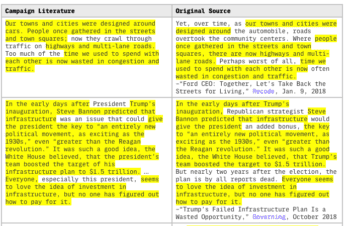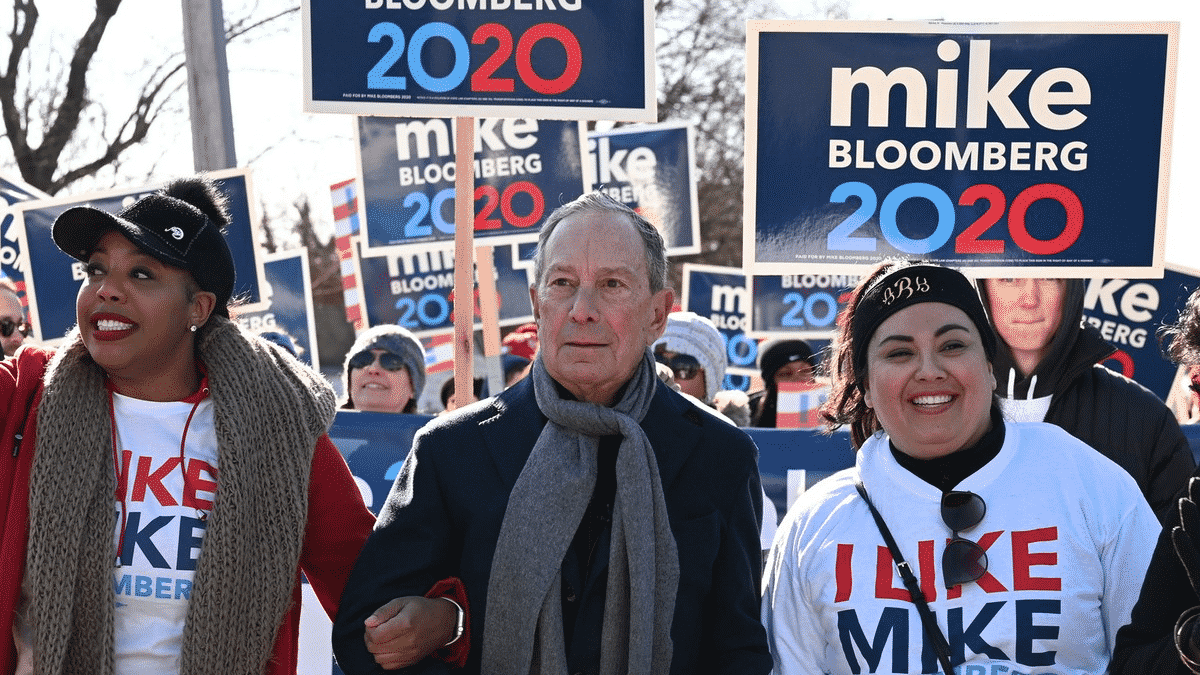The Michael Bloomberg Plagiarism Scandal
Another plagiarism story that could have been easily avoided...

Michael Bloomberg has made a name for himself as a controversial entrant in the Democratic primaries for the 2020 elections. Announcing his candidacy late in the race, back in November 2019, the former New York City mayor has drawn criticism for his self-funded campaign and his more centrist politics.
Yesterday, a new controversy arose around that campaign: Accusations of plagiarism.
The Intercept published a piece entitled “Bloomberg Plagiarized Parts of at Least Eight of His Plans” that highlighted parts of some eight of Bloomberg’s plans (or their accompanying fact sheets) that had overlapping text with outside sources.
When The Intercept brought the plagiarism to the attention of the campaign, one of the papers, his plan for green infrastructure, was pulled down and others were edited in an attempt to correct the issues.
The campaign has not denied that there was text copied without attribution. In a statement to The Intercept, they claimed that much of what was flagged were fact sheets sent out via an email newsletter service that does not support footnotes.
This was echoed in a statement to Business Insider, which claimed that internal drafts of the fact sheets included footnotes but that, for reasons unclear, those notes did not appear when posted on the web or sent via email.
“Internal drafts of these fact sheets included footnotes, which should have, but didn’t, appear on the web versions or what was emailed to reporters. We have since added citations and links to these documents.”
Spokesperson Julie Wood
However, this doesn’t really resolve the issue. While footnotes are great and very useful for citation, they are not used to indicate quoted material.
In the end, what’s worrying about this story isn’t the plagiarism itself nor the amount of material taken, but the lack of understanding of the rules of citation.
Understanding the Plagiarism

The plagiarism reported by The Intercept is not quite as open-and-shut as many would like to believe.
The documents themselves are relatively lengthy works. For example, one of the documents cited by The intercept is Bloomberg’s Housing Affordability and Homelessness Strategy Fact Sheet. The document contains more than 3,800 words across 9 pages but only 15 words are alleged to be copied and, even then, there is some evidence of rewriting.
However, other documents are a different story. For example, Bloomberg’s now-removed fact sheet on green infrastructure contained nearly 300 copied words across 6 passages that featured only limited rewriting. Obviously, that is a much more serious problem and the campaign was right to remove that one.
The other six cases run the gamut in between, sometimes involving just very short passages but with some sections being long enough to warrant real attention.
Ultimately though, the plagiarized text represents only a small part of the documents themselves. While this doesn’t justify or excuse the plagiarism, it does put it in perspective. Bloomberg’s papers have (or had) plagiarized parts in them, but the papers themselves are not wholesale plagiarisms.
Still, as with a lot of these stories, it’s not the copying itself that’s worrisome, it’s the response to it.
Analysis of the Plagiarism
The plagiarism itself, for most of the papers, is relatively small in scope. Only two or three of the papers had what could be considered significant plagiarism and those have either been edited or removed.
Is it plagiarism? Yes. But much of it can be easily explained by poor paraphrasing rather than a malicious attempt to take shortcuts. Given that much of the plagiarism is short in nature, dealing with relatively generic information/talking points and not taken from political opponents (much of it is from organizations Bloomberg himself worked with), it would be easy to dismiss this as a tempest in a teapot.
However, Bloomberg is not a political novice, like the mayor of Irmo, SC, he is a political veteran who is running a well-funded and very aggressive campaign. Combine that with the fact that he owns news media outlets, there was no reason for this to happen.
He and his campaign should understand the rules around citation very well. To make matters worse, a quick plagiarism check would have revealed these issues and given the campaign a chance to correct them before hitting publish.
In these cases, the plagiarism often speaks more to the slopiness of the campaign than anything else and that seems to be the case here.
However, the other issue is the campaign’s response, which focused entirely on the lack of footnotes rather than the copied text.
Though footnotes are important and even crucial in works such as these, they are only half of the story. Many of these passages were clearly quotes for the original source. However, the text was not placed in quotation marks nor were they put into blockquotes. There was no indication the language wasn’t from the campaign itself.
Footnotes are great for indicating where information and ideas came from when properly paraphrasing text, but they do not indicate quoted text. The campaign’s response missed that point entirely.
That, ultimately, is what I find most disturbing, not that the plagiarism happened but that, when pressed on it, the campaign didn’t understand the nature of the problem. That, to me, indicates that this problem is much deeper than a few passages in some fact sheets.
In the end, all that we can hope for is that the Bloomberg campaign, as well as the other campaigns, learn from this mistake and put in safeguards to prevent it in the future.
Bottom Line
To be clear, this isn’t the mayorship of a small town or a small campaign inexperienced with big-stage politics or the rules around citation and attribution. This is a politically-savvy candidate with a well-funded campaign on the biggest stage in U.S. politics.
Though, in the end, this scandal isn’t likely to make a difference, it’s notably larger in scope than accusations hurled at other Democrats. Ultimately, what you think about this story likely has more to do with how you view Bloomberg politically than you view the plagiarism itself.
That is one of the maxims that holds true across nearly all political plagiarism scandals and will hold true here.
Just like how the Melania Trump plagiarism scandal didn’t derail her husband’s Presidential campaign, this one is unlikely to derail Bloomberg’s.
Still, this is a distraction that could have been easily avoided with just the most basic of precaution. There was no reason for this to happen and it’s ultimately the carelessness and the lack of understanding that makes it worrisome, not the plagiarism itself.
Hopefully, all of the candidates will learn from this but, as previous political news cycles have taught us, it’s likely to be another political season filled with allegations of plagiarism.
Want to Reuse or Republish this Content?
If you want to feature this article in your site, classroom or elsewhere, just let us know! We usually grant permission within 24 hours.
